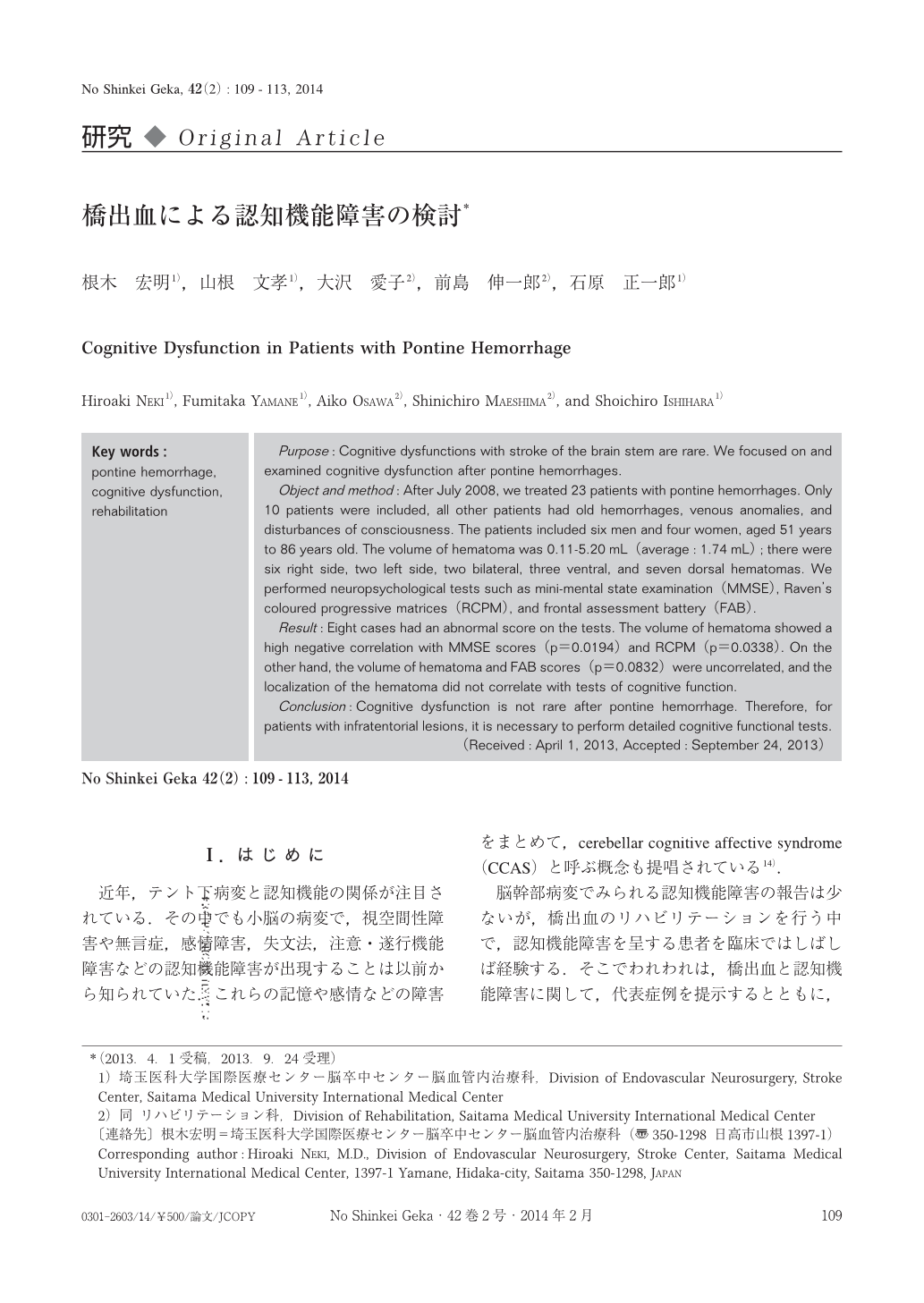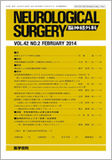Japanese
English
- 有料閲覧
- Abstract 文献概要
- 1ページ目 Look Inside
- 参考文献 Reference
Ⅰ.はじめに
近年,テント下病変と認知機能の関係が注目されている.その中でも小脳の病変で,視空間性障害や無言症,感情障害,失文法,注意・遂行機能障害などの認知機能障害が出現することは以前から知られていた.これらの記憶や感情などの障害をまとめて,cerebellar cognitive affective syndrome(CCAS)と呼ぶ概念も提唱されている14).
脳幹部病変でみられる認知機能障害の報告は少ないが,橋出血のリハビリテーションを行う中で,認知機能障害を呈する患者を臨床ではしばしば経験する.そこでわれわれは,橋出血と認知機能障害に関して,代表症例を提示するとともに,血腫量や病巣との関係について検討を行った.
Purpose:Cognitive dysfunctions with stroke of the brain stem are rare. We focused on and examined cognitive dysfunction after pontine hemorrhages.
Object and method:After July 2008, we treated 23 patients with pontine hemorrhages. Only 10 patients were included, all other patients had old hemorrhages, venous anomalies, and disturbances of consciousness. The patients included six men and four women, aged 51 years to 86 years old. The volume of hematoma was 0.11-5.20mL(average:1.74mL);there were six right side, two left side, two bilateral, three ventral, and seven dorsal hematomas. We performed neuropsychological tests such as mini-mental state examination(MMSE), Raven's coloured progressive matrices(RCPM), and frontal assessment battery(FAB).
Result:Eight cases had an abnormal score on the tests. The volume of hematoma showed a high negative correlation with MMSE scores(p=0.0194)and RCPM(p=0.0338). On the other hand, the volume of hematoma and FAB scores(p=0.0832)were uncorrelated, and the localization of the hematoma did not correlate with tests of cognitive function.
Conclusion:Cognitive dysfunction is not rare after pontine hemorrhage. Therefore, for patients with infratentorial lesions, it is necessary to perform detailed cognitive functional tests.

Copyright © 2014, Igaku-Shoin Ltd. All rights reserved.


